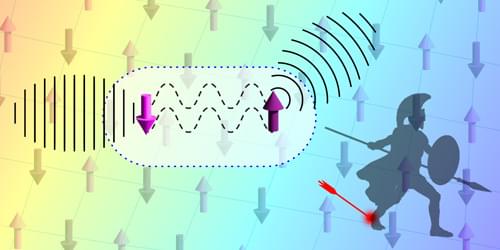For a long time, researchers assumed that phonons could not contribute to the thermal Hall effect because of their lack of charge and spin. New work challenges this assumption.
How heat flows in interacting quantum many-body systems is one of the most interesting open problems in condensed-matter physics. Understanding thermal transport is particularly challenging in systems where charge-carrier contributions to energy transport are strongly suppressed, such as in insulators and superconductors. In such systems, heat transport cannot therefore be understood in terms of electronic carriers alone. In insulators, acoustic phonons are among the main energy carriers in an insulator. However, determining how and to what extent phonons contribute to heat transport in a material is the Achilles’ heel of interpreting thermal conductivity measurements. In particular, whether or not phonons can contribute to the thermal Hall effect—in which a temperature gradient in one direction produces heat flow in a perpendicular direction—remains an open question.










Comments are closed.